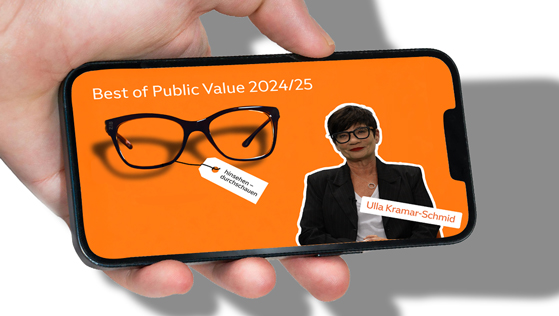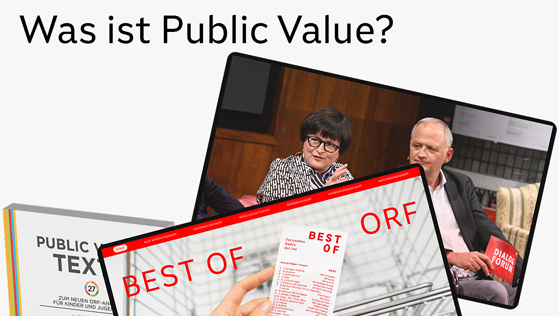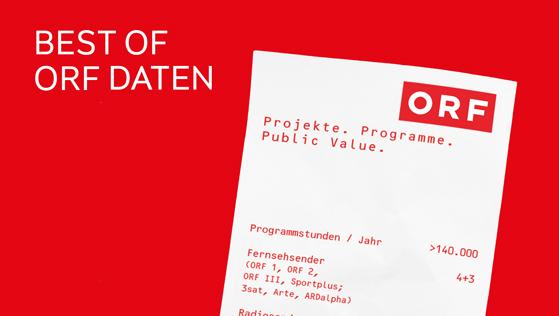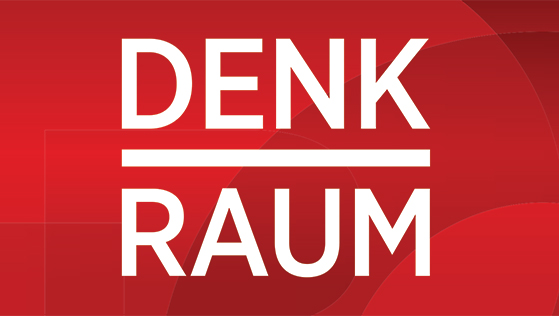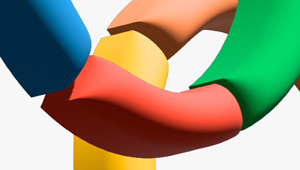 Die Österreicher vertrauen ihren Medien mehr als der EU-Durchschnitt, und zwar entlang aller Medienformen. Das ergab eine heute von der EU-Kommission veröffentlichte Eurobarometer-Umfrage zu Medienpluralismus und Demokratie (Spezial Eurobarometer 452). So gaben 72% der Befragten in Österreich an, dass ihrer Ansicht nach die nationalen Medien vertrauenswürdige Informationen anbieten. EU-weit sagen das nur 53%. Als besonders zuverlässig gelten dabei in Österreich das Radio (79% zuverlässig, EU28: 66%), Fernsehen (77%, EU28: 55%) sowie Zeitungen (66%, EU28, 55%). Eiinzig soziale Medien, Blogs und Videoportale werden nur von vier von zehn Befragten in Österreich (42%, EU28: 32%) als vertrauenswürdig eingestuft.
Die Österreicher vertrauen ihren Medien mehr als der EU-Durchschnitt, und zwar entlang aller Medienformen. Das ergab eine heute von der EU-Kommission veröffentlichte Eurobarometer-Umfrage zu Medienpluralismus und Demokratie (Spezial Eurobarometer 452). So gaben 72% der Befragten in Österreich an, dass ihrer Ansicht nach die nationalen Medien vertrauenswürdige Informationen anbieten. EU-weit sagen das nur 53%. Als besonders zuverlässig gelten dabei in Österreich das Radio (79% zuverlässig, EU28: 66%), Fernsehen (77%, EU28: 55%) sowie Zeitungen (66%, EU28, 55%). Eiinzig soziale Medien, Blogs und Videoportale werden nur von vier von zehn Befragten in Österreich (42%, EU28: 32%) als vertrauenswürdig eingestuft.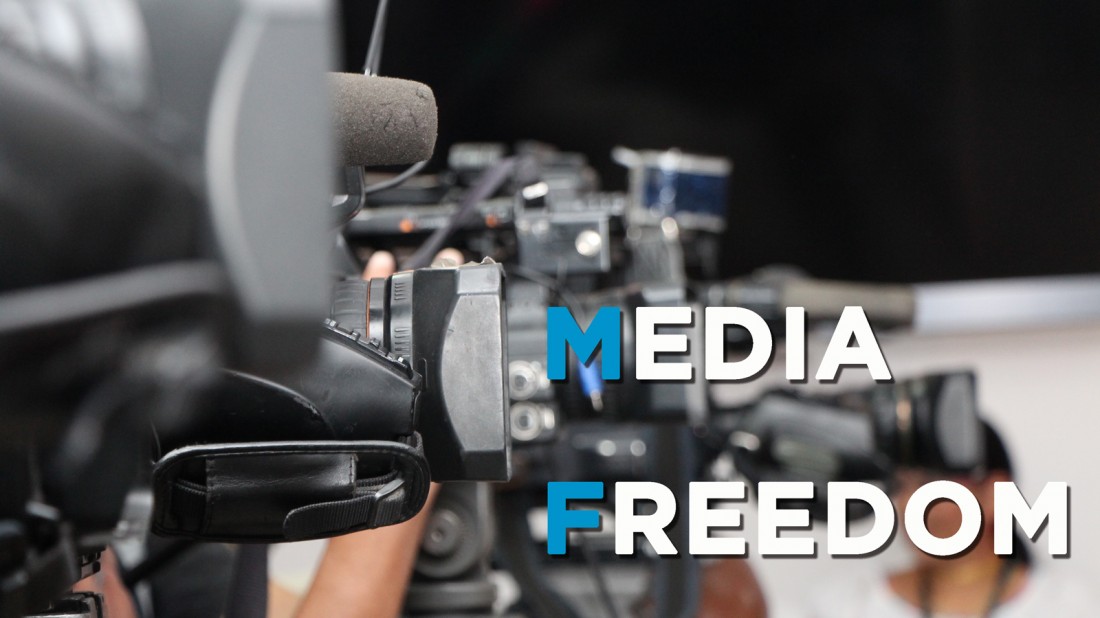
The results of a report by the European Commission suggest that US tech giants Facebook, Twitter, YouTube and Microsoft aren’t responding to cases of online hate speech fast enough. According to the EU’s code of conduct to combat illegal online hate speech, which was implemented in May 2016 and agreed upon by all big players of the IT-sector, technology companies are required to review reports of hate speech less than 24 hours after they were first reported. However, the results of the first assessment of this new code of conduct indicate, that only 40 percent of all notifications of hate speech were acted upon within a 24-hour timeframe.
European Commissioner for Justice Věra Jourová said in a statement this week: "It is our duty to protect people in Europe from incitement to hatred and violence online. This is the common goal of the code of conduct.”
Twelve NGOs based in nine EU countries analyzed the responses to hate speech notifications over a six-week timeframe for the evaluation during October and November 2016. The findings, according to the European Commission, indicate that among the 600 notifications of online hate speech made in total, 28 percent led to a removal, 40 percent of all responses were received within 24 hours, while another 43 percent arrived after 48 hours.
Article: Europe Presses American Tech Companies to Tackle Hate Speech
 According to a report on the European Federation of Journalists’ website, the results of the 2016 Eurobarometer survey on “Media pluralism and independence” indicate two worrying trends: The majority of EU citizens believe that the media in their countries lack independence; and 75% of the respondents have experienced hate speech on social media. The Eurobarometer survey, which was published in November, aims at representing the state of media pluralism and independence across the European Union.
According to a report on the European Federation of Journalists’ website, the results of the 2016 Eurobarometer survey on “Media pluralism and independence” indicate two worrying trends: The majority of EU citizens believe that the media in their countries lack independence; and 75% of the respondents have experienced hate speech on social media. The Eurobarometer survey, which was published in November, aims at representing the state of media pluralism and independence across the European Union.A total of 28,000 citizens across 28 countries participated in the survey. The study painted a mixed picture of media pluralism and freedom across the European Union. The following data is a selection of the survey’s results:
57% say media don’t provide information independent from political and commercial pressure:
In nine member states, majorities agree their national media provide information free from political or commercial pressure. There is a big contrast between Northern and Southern countries: in Finland (78%), the Netherlands and Denmark (both 61%) this view is the most prominent, while respondents in Greece (12%), Spain (24%) and Cyprus (25%) are the least likely to agree.
60% say public service media (PSM) don’t provide independent information:
However in Finland (65%), Sweden, the Netherlands (both 55%), Denmark (54%), Germany and Slovakia (both 50%) a majority of respondents think their national public service media are free.
46% think their national media regulators are not independent:
Most of respondents (69%) are not aware of the body that oversees audiovisual media in their country. 10% said they are aware but could not give the correct name of the body.
53% agree their national media provide trustworthy information:
Nearly 9 in 10 in Finland (88%) agree, as do more than three quarters in Sweden and Denmark (both 77%). In contrast, only 26% in Greece, 34% in France and 38% in Spain agree.
Article by the European Federation of Journalists
Full survey: "Media pluralism and independence"
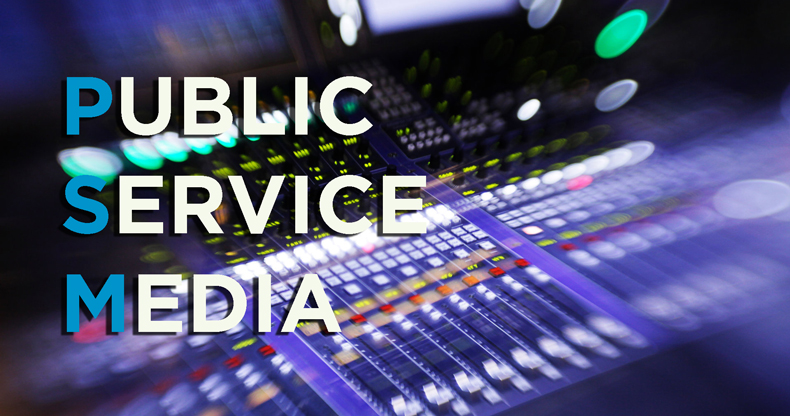 Das interdisziplinäre Gutachten "Legitimation und Auftrag des öffentlich-rechtlichen Fernsehens in Zeiten der Cloud" wurde Anfang des Monats im Beisein der Autoren Professor Dieter Dörr, Professor Bernd Holznagel und Professor Arnold Picot in Berlin vorgestellt. Die Studie befasst sich eingehend mit der Frage, inwieweit sich die Medienlandschaft aufgrund der Digitalisierung verändert hat und noch weiter verändern wird. Das Resümee der Gutachter: Trotz substantieller Veränderungen besteht der in der Verfassung begründete Auftrag des öffentlich-rechtlichen Rundfunks "zur Meinungsbildung und Integration der Gesellschaft beizutragen" unverändert weiter fort.
Das interdisziplinäre Gutachten "Legitimation und Auftrag des öffentlich-rechtlichen Fernsehens in Zeiten der Cloud" wurde Anfang des Monats im Beisein der Autoren Professor Dieter Dörr, Professor Bernd Holznagel und Professor Arnold Picot in Berlin vorgestellt. Die Studie befasst sich eingehend mit der Frage, inwieweit sich die Medienlandschaft aufgrund der Digitalisierung verändert hat und noch weiter verändern wird. Das Resümee der Gutachter: Trotz substantieller Veränderungen besteht der in der Verfassung begründete Auftrag des öffentlich-rechtlichen Rundfunks "zur Meinungsbildung und Integration der Gesellschaft beizutragen" unverändert weiter fort.
Neue Herausforderungen
Mit Blick auf die Unübersichtlichkeit von Informationen im Netz, der Meinungsrelevanz von linearen und non-linearen Bewegtbildangeboten und den besonderen ökonomischen Eigenschaften, denen Fernsehen auch in Zeiten der Cloud unterliegt, sei ein politisch und wirtschaftlich unabhängiger Rundfunk essentiell, so die Wissenschaftler. Und: Diese Funktion könne sowohl aus verfassungsrechtlicher als auch aus ökonomischer Sicht aktuell nur vom öffentlich-rechtlichen Rundfunk wahrgenommen werden. Sie betonten zudem, dass rundfunkrechtliche Vorgaben an einigen Stellen an die veränderten Rahmenbedingungen angepasst werden müssten; beispielsweise sollten Sendungen künftig länger als heute erlaubt in der Mediathek bleiben dürfen.
Fernsehen wird zu "Cloud-TV"
Außerdem verkündet das Gutachten auch das Ende des traditionellen Fernsehens: Das Medium befinde sich im Übergang zum "Cloud-TV", so die Autoren. Mit diesem Begriff bezeichnen die Wissenschaftler die vierte Generation des Fernsehens nach dem terrestrischen TV, dem Multikanalfernsehen über Kabel und Satellit sowie dem digitalen Fernsehen. "Cloud-TV" vereint in einem Angebot normales Fernsehen, Video on Demand und andere Onlinedienste bis hin zu Social-Media-Plattformen sowie die Verbreitung über unterschiedliche Verteilmedien auf eine Vielzahl von Endgeräten und bildet damit die Zukunft des Mediums.
Studie "Legitimation und Auftrag des öffentlich-rechtlichen Fernsehens in Zeiten der Cloud"
 Die Große Kammer des Europäischen Gerichtshof für Menschenrechte (EGMR) hat in einer Entscheidung gegen Ungarn festgestellt, dass Artikel 10 der Menschenrechtskonvention auch ein Recht auf Informationszugang beinhaltet. Die Bedingungen für diese Auslegung: Es muss um Informationen über Angelegenheiten von öffentlichem Interesse gehen, die mit dem Ziel erfragt werden, die Öffentlichkeit darüber zu informieren.
Die Große Kammer des Europäischen Gerichtshof für Menschenrechte (EGMR) hat in einer Entscheidung gegen Ungarn festgestellt, dass Artikel 10 der Menschenrechtskonvention auch ein Recht auf Informationszugang beinhaltet. Die Bedingungen für diese Auslegung: Es muss um Informationen über Angelegenheiten von öffentlichem Interesse gehen, die mit dem Ziel erfragt werden, die Öffentlichkeit darüber zu informieren.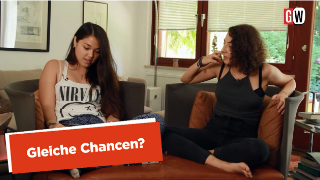 Die größte Jugendumfrage der Zweiten Republik ist abgeschlossen: Gemeinsam mit 14 weiteren öffentlich-rechtlichen Medien in Europa wurde der ORF zur Plattform für die Vermessung der Welt der 18- bis 34-Jährigen. In 149 Fragen zu den Themen Politik, Bildung, Arbeit, Europa, Glück, Sex u. v. m. ergründete seit 11. April 2016, gehostet von Hitradio Ö3, eine interaktive Online-Umfrage Wünsche, Haltungen, Ziele, Sorgen und Hoffnungen junger Menschen. Dieses Porträt der Generation What ist nun fertig, fast 90.000 Österreicherinnen und Österreicher haben mitgemacht. Das Institut SORA hat im Auftrag des ORF die Daten der Online-Umfrage in einer validierten Studie ausgewertet. Ab 14. November werden die Ergebnisse nun vom ORF bilanziert.
Die größte Jugendumfrage der Zweiten Republik ist abgeschlossen: Gemeinsam mit 14 weiteren öffentlich-rechtlichen Medien in Europa wurde der ORF zur Plattform für die Vermessung der Welt der 18- bis 34-Jährigen. In 149 Fragen zu den Themen Politik, Bildung, Arbeit, Europa, Glück, Sex u. v. m. ergründete seit 11. April 2016, gehostet von Hitradio Ö3, eine interaktive Online-Umfrage Wünsche, Haltungen, Ziele, Sorgen und Hoffnungen junger Menschen. Dieses Porträt der Generation What ist nun fertig, fast 90.000 Österreicherinnen und Österreicher haben mitgemacht. Das Institut SORA hat im Auftrag des ORF die Daten der Online-Umfrage in einer validierten Studie ausgewertet. Ab 14. November werden die Ergebnisse nun vom ORF bilanziert.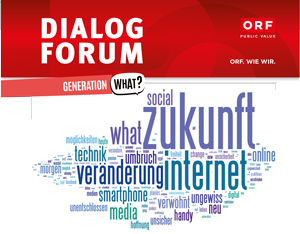 Das Selfie einer ganzen Generation ist fertig: Insgesamt haben knapp eine Million Menschen in 35 Staaten mitgemacht, fast 90.000 Österreicher/innen haben sich mit 149 Fragen zu Politik und Sex, zu Bildung und Glück, zu Arbeit und Europa auseinandergesetzt. Das ORF-DialogForum diskutiert die Ergebnisse: Ticken die jungen Österreicherinnen und Österreicher anders als die anderen? Was will die Generation What von Europa, von der Politik, voneinander? Wem vertraut sie? Was will sie beibehalten, was ändern? Und: Was bedeutet das alles für die Zukunft?
Das Selfie einer ganzen Generation ist fertig: Insgesamt haben knapp eine Million Menschen in 35 Staaten mitgemacht, fast 90.000 Österreicher/innen haben sich mit 149 Fragen zu Politik und Sex, zu Bildung und Glück, zu Arbeit und Europa auseinandergesetzt. Das ORF-DialogForum diskutiert die Ergebnisse: Ticken die jungen Österreicherinnen und Österreicher anders als die anderen? Was will die Generation What von Europa, von der Politik, voneinander? Wem vertraut sie? Was will sie beibehalten, was ändern? Und: Was bedeutet das alles für die Zukunft? Präsidentin von Reporter ohne Grenzen Österreich, Rubina Möhring ist derzeit mit KollegInnen aus Paris und Deutschland in Istanbul, wo heute und morgen wieder JournalistInnen vor Gericht stehen. „Hier sitzen Menschen selbst auf der Anklagebank, die sich sonst immer für andere Verfolgte einsetzen. Das zeigt, wie dramatisch die Lage in der Türkei mittlerweile ist“, sagt Rubina Möhring.
Präsidentin von Reporter ohne Grenzen Österreich, Rubina Möhring ist derzeit mit KollegInnen aus Paris und Deutschland in Istanbul, wo heute und morgen wieder JournalistInnen vor Gericht stehen. „Hier sitzen Menschen selbst auf der Anklagebank, die sich sonst immer für andere Verfolgte einsetzen. Das zeigt, wie dramatisch die Lage in der Türkei mittlerweile ist“, sagt Rubina Möhring.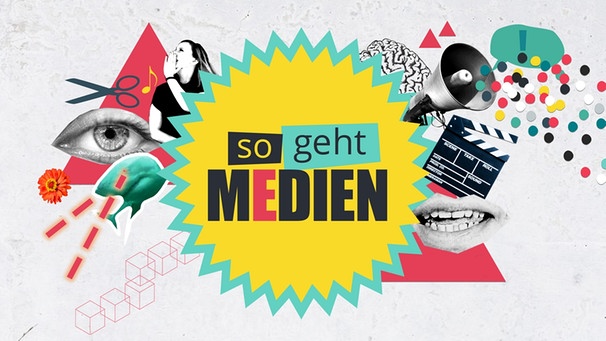
 One journalist is killed every four-and-a-half days, according to a report released by UNESCO on Wednesday. While the vast majority of murderous attacks on media workers remain unpunished, UNESCO welcomes an increase in the number of Member States showing stronger will to monitor and report on these crimes.
One journalist is killed every four-and-a-half days, according to a report released by UNESCO on Wednesday. While the vast majority of murderous attacks on media workers remain unpunished, UNESCO welcomes an increase in the number of Member States showing stronger will to monitor and report on these crimes.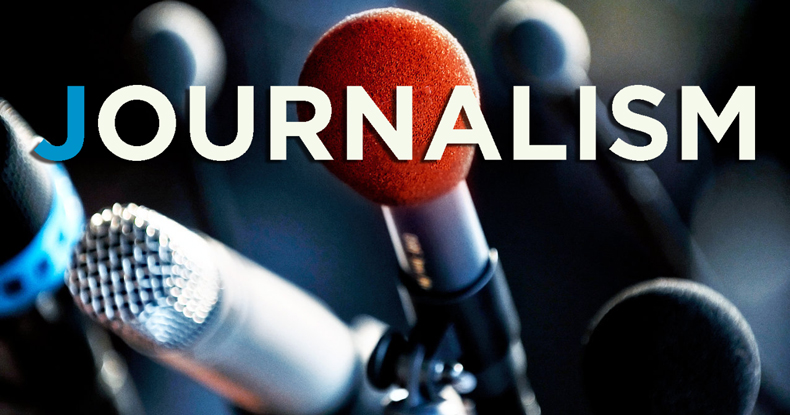 Aidan White, CEO of the Ethical Journalism Network (EJN), recently published an article on the network’s site, analyzing the effects of Donald Trump’s election campaign on journalism and the American media landscape. According to the New York Times, Donald Trump’s candidacy has tested American journalism to the limit. White seconds this sentiment, arguing that the candidate has forced editors and reporters to question their attachment to the cardinal principles of journalism — balance and impartiality.
Aidan White, CEO of the Ethical Journalism Network (EJN), recently published an article on the network’s site, analyzing the effects of Donald Trump’s election campaign on journalism and the American media landscape. According to the New York Times, Donald Trump’s candidacy has tested American journalism to the limit. White seconds this sentiment, arguing that the candidate has forced editors and reporters to question their attachment to the cardinal principles of journalism — balance and impartiality. Reporters Without Borders (RSF) and the Institute of Mass Information (IMI) have conducted a research and advocacy project in Ukraine, titled “The Media Ownership Monitor” (MOM), over the past three months. According to its findings, oligarchic ownership still poses a strong threat to media freedom and freedom of speech within the country. MOM reports that Ukrainian mass media outlets are mostly driven by their owners’ individual interests and thus serve as instruments to securing political and economic power. Corruption and lack of financial transparency further inhibit the healthiness of the country’s media landscape.
Reporters Without Borders (RSF) and the Institute of Mass Information (IMI) have conducted a research and advocacy project in Ukraine, titled “The Media Ownership Monitor” (MOM), over the past three months. According to its findings, oligarchic ownership still poses a strong threat to media freedom and freedom of speech within the country. MOM reports that Ukrainian mass media outlets are mostly driven by their owners’ individual interests and thus serve as instruments to securing political and economic power. Corruption and lack of financial transparency further inhibit the healthiness of the country’s media landscape. Die Schweizerische Radio- und Fernsehgesellschaft (SRG) hat ein neues Papier zur Service-Public-Debatte veröffentlicht. Mit der Deklaration „Für alle“ will das Medienhaus seine Haltung klar darlegen und gleichzeitig einen Beitrag zur Diskussion leisten – frei nach dem Motto: Hier stehen wir und hier wollen wir bleiben! Mit dem Positionspapier soll dabei nicht nur klar festgehalten werden wofür die SRG einsteht, sondern auch wohingegen sie sich wehrt und wohin sie sich entwickeln will.
Die Schweizerische Radio- und Fernsehgesellschaft (SRG) hat ein neues Papier zur Service-Public-Debatte veröffentlicht. Mit der Deklaration „Für alle“ will das Medienhaus seine Haltung klar darlegen und gleichzeitig einen Beitrag zur Diskussion leisten – frei nach dem Motto: Hier stehen wir und hier wollen wir bleiben! Mit dem Positionspapier soll dabei nicht nur klar festgehalten werden wofür die SRG einsteht, sondern auch wohingegen sie sich wehrt und wohin sie sich entwickeln will. The Guardian reports that the UN human rights council (HRC) has adopted a ground-breaking, comprehensive resolution aimed at protecting journalists and demanding the release of all journalists who have been arbitrarily detained. It urges the reform of laws designed to obstruct editorial work, and calls on states not to interfere with the use of encryption and digital security tools that enable anonymity. The HRC`s initiative was welcomed by media freedom groups; however, several journalists’ organizations, press freedom bodies and human rights campaigners expressed concerns about an existing lack of mechanisms in place to enforce the UN’s calls.
The Guardian reports that the UN human rights council (HRC) has adopted a ground-breaking, comprehensive resolution aimed at protecting journalists and demanding the release of all journalists who have been arbitrarily detained. It urges the reform of laws designed to obstruct editorial work, and calls on states not to interfere with the use of encryption and digital security tools that enable anonymity. The HRC`s initiative was welcomed by media freedom groups; however, several journalists’ organizations, press freedom bodies and human rights campaigners expressed concerns about an existing lack of mechanisms in place to enforce the UN’s calls. Das ZDF stellte Anfang Oktober dem Fernsehrat in Mainz einen Bericht zu den Themen „gesellschaftliches Engagement“ und „unternehmerische Verantwortung“ vor. Erstmals veröffentlicht damit ein deutscher, öffentlich-rechtlicher Sender eine Aufzeichnung zu seinen Nachhaltigkeitsbestrebungen, die auch dem nationalen Nachhaltigkeitskodex entspricht.
Das ZDF stellte Anfang Oktober dem Fernsehrat in Mainz einen Bericht zu den Themen „gesellschaftliches Engagement“ und „unternehmerische Verantwortung“ vor. Erstmals veröffentlicht damit ein deutscher, öffentlich-rechtlicher Sender eine Aufzeichnung zu seinen Nachhaltigkeitsbestrebungen, die auch dem nationalen Nachhaltigkeitskodex entspricht.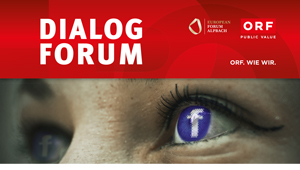 Was ist wahr und was ist falsch? Im digitalen Rausch der Online-Welt sind Stories, Nachrichten und Bilder dann erfolgreich, wenn sie geklickt und geteilt werden. Am Smartphone schauen alle News gleich aus, egal ob sie glaubwürdig sind oder nicht. „Go viral or die“ lautet die Devise. Kein Wunder, dass es Verschwörungstheorien, offenkundige Manipulationen und Propaganda heute leichter schaffen, im Netz der Online-Welten ihr Publikum zu finden. Kurz vor der US-Wahl stellen wir die Frage: Welchen Einfluss haben Facebook und Google auf Europa? Was bewirken Filterbubbles und Echoräume? Wie reagieren europäische Qualitätsmedien auf die Umbrüche der Medienwelt. Und nicht zuletzt: Was hat der Journalismus von Morgen mit der Demokratie in unseren Gesellschaften zu tun? Müssen wir akzeptieren, dass die aufklärerische Rolle der Medien mit der Digitalisierung zu Grabe getragen wird?
Was ist wahr und was ist falsch? Im digitalen Rausch der Online-Welt sind Stories, Nachrichten und Bilder dann erfolgreich, wenn sie geklickt und geteilt werden. Am Smartphone schauen alle News gleich aus, egal ob sie glaubwürdig sind oder nicht. „Go viral or die“ lautet die Devise. Kein Wunder, dass es Verschwörungstheorien, offenkundige Manipulationen und Propaganda heute leichter schaffen, im Netz der Online-Welten ihr Publikum zu finden. Kurz vor der US-Wahl stellen wir die Frage: Welchen Einfluss haben Facebook und Google auf Europa? Was bewirken Filterbubbles und Echoräume? Wie reagieren europäische Qualitätsmedien auf die Umbrüche der Medienwelt. Und nicht zuletzt: Was hat der Journalismus von Morgen mit der Demokratie in unseren Gesellschaften zu tun? Müssen wir akzeptieren, dass die aufklärerische Rolle der Medien mit der Digitalisierung zu Grabe getragen wird?Donnerstag, 3. November 2016, 19.00 Uhr
ORF Radiokulturhaus, Großer Sendesaal
Argentinierstraße 30a, 1040 Wien
ERÖFFNUNG:
Franz Fischler, Präsident Europäisches Forum Alpbach, Wien
DISKUSSION:
Olja Alvir, Journalistin und Autorin, Wien
Bernhard Pörksen, Institut für Medienwissenschaft, Universität Tübingen
Hanno Settele, ORF
Elisabeth Wehling, Kognitionsforscherin, University of California, Berkeley
Aidan White, Director of the Ethical Journalism Network
MODERATION:
Klaus Unterberger, ORF Public Value
Wir bitten Sie, uns unter (01) 87878-14384 oder per E-Mail an praesentation@orf.at über Ihre Zu- und Absagen zu informieren.
 Am 1. Januar 2017 tritt eine Neufassung des WDR-Gesetzes in Kraft, die unter anderem die Reduktion von Werbezeiten im Hörfunk zur Folge haben wird. Ab Anfang nächsten Jahres darf in den Radiowellen des WDR deshalb - statt wie bisher 90 Minuten - nur noch im Umfang von 75 Minuten werktäglich geworben werden. Außerdem dürfen Werbungen mit Jahresbeginn 2017 nur noch in zwei statt bisher drei Programmen eingespielt werden. 2019 wird diese Regelung mit nur 60 Minuten Werbezeit pro Tag in einem Programm nochmals verschärft.
Am 1. Januar 2017 tritt eine Neufassung des WDR-Gesetzes in Kraft, die unter anderem die Reduktion von Werbezeiten im Hörfunk zur Folge haben wird. Ab Anfang nächsten Jahres darf in den Radiowellen des WDR deshalb - statt wie bisher 90 Minuten - nur noch im Umfang von 75 Minuten werktäglich geworben werden. Außerdem dürfen Werbungen mit Jahresbeginn 2017 nur noch in zwei statt bisher drei Programmen eingespielt werden. 2019 wird diese Regelung mit nur 60 Minuten Werbezeit pro Tag in einem Programm nochmals verschärft. As few weeks into the launch of the “Online”-project in Austria, the International Press Institute (IPI) has now published its first story as part of the campaign. For the piece, IPI interviewed five female Austrian journalists on their experiences with online harassment, digital attacks and online defamation.
As few weeks into the launch of the “Online”-project in Austria, the International Press Institute (IPI) has now published its first story as part of the campaign. For the piece, IPI interviewed five female Austrian journalists on their experiences with online harassment, digital attacks and online defamation.
You can find the article here:
In English
More Info on the IPI´s Online-project is available here.
 Seit Anfang Oktober ist „funk“, das neue multimediale Angebot von ARD und ZDF für die Zielgruppe 14-29, online. Im Rahmen der Programmpräsentation betonten die Senderverantwortlichen Florian Hager und Sophie Burkhart, dass die Internet-Formate des modernen “Content-Netzwerkes“ anders als alle bisherigen ARD- und ZDF-Programme sein werden. „funk“ vermeide deshalb klassisches lineares Fernsehen und stelle Webvideos als Programmschwerpunkt in den Vordergrund, berichtete die Berliner Zeitung. Pro Jahr steht „funk“ ein Budget von 43,7 Millionen Euro zur Verfügung: Zwei Drittel der Kosten trägt die ARD, ein Drittel übernimmt das ZDF.
Seit Anfang Oktober ist „funk“, das neue multimediale Angebot von ARD und ZDF für die Zielgruppe 14-29, online. Im Rahmen der Programmpräsentation betonten die Senderverantwortlichen Florian Hager und Sophie Burkhart, dass die Internet-Formate des modernen “Content-Netzwerkes“ anders als alle bisherigen ARD- und ZDF-Programme sein werden. „funk“ vermeide deshalb klassisches lineares Fernsehen und stelle Webvideos als Programmschwerpunkt in den Vordergrund, berichtete die Berliner Zeitung. Pro Jahr steht „funk“ ein Budget von 43,7 Millionen Euro zur Verfügung: Zwei Drittel der Kosten trägt die ARD, ein Drittel übernimmt das ZDF.
Die Beiträge lassen sich im Internet unter www.funk.net abrufen und sind auch per App am Smartphone und Tablet, auf Plattformen wie YouTube und Facebook und zum Teil auch bei Snapchat und Instagram zugänglich. Inhaltlich bietet „funk“ drei Schwerpunkte: Information, Orientierung und Unterhaltung; verteilt auf insgesamt 40 verschiedene Formate. In den Bereich “Information“ fällt beispielsweise die Sendung „Headlinez“, in der sich der Berliner Journalist und Blogger Rayk Anders wöchentlich mit gesellschaftlich relevanten Themen beschäftigt. Unterhaltung bietet „Auf Klo“ - ein YouTube-Talkformat für Mädchen, für das Moderatorin Mai Thi Nguyen-Kim Woche für Woche einen Gast auf der Frauentoilette interviewt.
Brücken schlagen will „funk“ mit der gesellschaftskritischen, politischen Satire „Datteltäter“ für die ein Christ, ein Konvertit, zwei Sunniten und eine Shiitin gemeinsam mit religiösen Stereotypen aufräumen und sich über Engstirnigkeit lustig machen. "Wir wollen einen Raum schaffen für junge Kreative, für Innovationen, für Experimente", fasst die ARD-Vorsitzende Karola Wille die Ambitionen des Projektes zusammen.
Mehr Infos:
Zum Artikel von dwdl.de
Zum Artikel der Berliner Zeitung
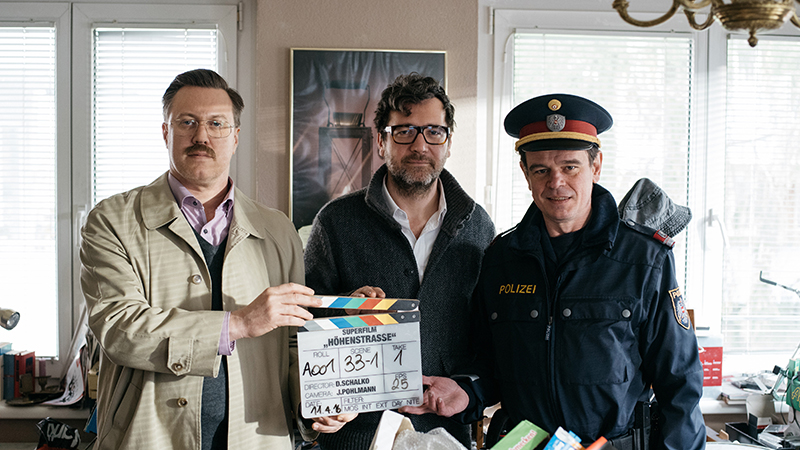 Mit vier TV- und Kino-Produktionen ist der ORF beim diesjährigen Film Festival Cologne vertreten, das von 7. bis 14. Oktober zum bereits 26. Mal stattfindet: Noch bevor ORF eins diesmal mit vier Filmen in die neue Landkrimi-Saison startet, feiert David Schalkos „Höhenstraße“ unter den zehn besten Produktionen der aktuellen internationalen Fernsehlandschaft ihre Premiere (Kategorie „Top Ten TV“, 13. Oktober). Präsentiert wird auch der SRF/ORF/ZDF-Zweiteiler „Gotthard“, der seine Welturaufführung bereits beim 69. Filmfestival Locarno feierte und voraussichtlich im Dezember in ORF 2 zu sehen ist (Kategorie „Showcase“, 8. Oktober). Ebenfalls im Festivalprogramm mit dabei ist Wolfgang Murnbergers ORF/ARD-Fernsehfilm „Kästner und der kleine Dienstag“, in dem Florian David Fitz die wahre Geschichte einer ganz besonderen Freundschaft erzählt (Kategorie „Specials“, 13. Oktober).
Mit vier TV- und Kino-Produktionen ist der ORF beim diesjährigen Film Festival Cologne vertreten, das von 7. bis 14. Oktober zum bereits 26. Mal stattfindet: Noch bevor ORF eins diesmal mit vier Filmen in die neue Landkrimi-Saison startet, feiert David Schalkos „Höhenstraße“ unter den zehn besten Produktionen der aktuellen internationalen Fernsehlandschaft ihre Premiere (Kategorie „Top Ten TV“, 13. Oktober). Präsentiert wird auch der SRF/ORF/ZDF-Zweiteiler „Gotthard“, der seine Welturaufführung bereits beim 69. Filmfestival Locarno feierte und voraussichtlich im Dezember in ORF 2 zu sehen ist (Kategorie „Showcase“, 8. Oktober). Ebenfalls im Festivalprogramm mit dabei ist Wolfgang Murnbergers ORF/ARD-Fernsehfilm „Kästner und der kleine Dienstag“, in dem Florian David Fitz die wahre Geschichte einer ganz besonderen Freundschaft erzählt (Kategorie „Specials“, 13. Oktober).

